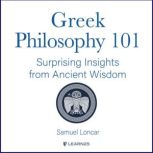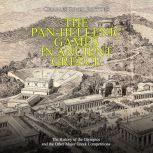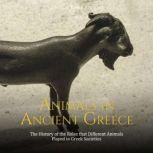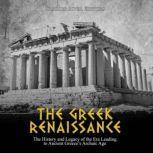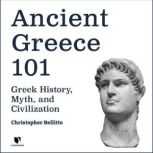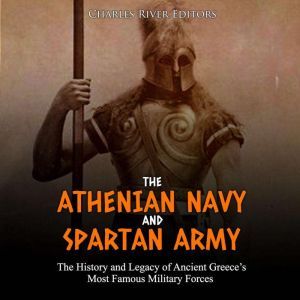
Details
Athenian Navy and Spartan Army, The: The History and Legacy of Ancient Greece’s Most Famous Military Forces
Author: Charles River Editors
Narrator: Scott Clem
Unabridged: 4 hr 4 min
Format: Digital Audiobook
Publisher: Findaway Voices
Published: 04/19/2019
Genre: History - Ancient - Greece
Synopsis
“Forward, sons of the Greeks,Liberate the fatherland,Liberate your children, your women,The altars of the gods of your fathers,And the graves of your ancestors: Now is the fight for everything.” – The Greek battle hymn sung before the Battle of Salamis according to Aeschylus
Dominated to this day by the sprawling white marble complex of the Acropolis, Athens is a city which is immensely and rightly proud of its past. For a period of roughly three centuries, the polis of Athens stood, if not in a position of unchallenged supremacy among the cities of Hellas, then at the very least among its three most important polities. Its fledgling empire, though small by the standards later set by Alexander or the Romans, or even by those of its ancient enemy Persia, nonetheless encompassed cities as far afield as Asia Minor and Southern Italy, a remarkable fact considering such expansion was achieved by the inhabitants of a single city and its immediate surroundings, rather than by an entire nation.
Yet despite a martial tradition that, if taken as a whole, was second to none save the Spartans, Athens is chiefly remembered for two reasons: its political system, which would in time form the nucleus of all Western democratic systems of government, and the remarkable number of outstanding individuals which, during the Golden Age of Athens, lived and flourished in the enlightened city-state. The Ancient Athenians formed the backbone of the West’s entire culture, from the arts to philosophy and everything in between. In virtually all fields of human endeavor Athens was so much at the forefront of dynamism and innovation that the products of its most brilliant minds remain not only influential but entirely relevant to this day.
The most unique city-state in Ancient Greece was Sparta, which continues to fascinate contemporaneous society. It is not entirely clear why Sparta placed such a great emphasis on having a militaristic society, but the result was that military fitness was a preoccupation from birth. If a Spartan baby did not appear physically fit at birth, it was left to die. Spartan children underwent military training around the age of 7 years old, and every male had to join the army around the age of 18.
The Spartans, whose carefully constructed approach to warfare and – there is no other word for it – Spartan way of life, earned the grudging admiration of all of Greece and succeeded in establishing themselves in the years following the reforms of the semi-legendary ruler Lycurgus as the greatest military force in all of Hellas. Athens might have the mightiest fleet and the greatest cadre of philosophers and dramatists, Thessaly might have had the most vaunted cavalry, and the great city-states of Argos, Thebes and Corinth all had their own claims to fame, but on the battlefield the Spartan phalanx stood without peer. So feared were they in Greece that their very appearance on the battlefield could cause entire enemy armies to flee in terror, and in one of history’s most famous battles, 300 Spartan warriors headed a combined Greek force which held off the hundreds of thousands of Persian warriors of Xerxes’s invading army for three days at Thermopylae, inflicting an estimated 20,000 casualties upon them before dying to the last man rather than retreating.
The Spartan Military: The History and Legacy of the Ancient World’s Most Renowned Army looks at the history of the Spartan military, and how it became one of the most fearsome fighting forces in history.
by Samuel Loncar
Born in Athens, Greece, acclaimed Yale-educated philosopher Samuel Loncar helps you discover how ancient Greek philosophy—or “love of wisdom”—forms powerful bridges between East and West as well as past and present...
Published: 10/27/2020
by Charles River Editors
The Pan-Hellenic Games is the collective term for the four major sports festivals held in ancient Greece. These include the Olympic Games, held in honor of Zeus at Olympia every four years; the Pythian Games in honor of Apollo, held at Delphi every...
Published: 03/25/2020
by Charles River Editors
To many in the ancient world, their gods and goddesses were all around them and could be seen daily in nature, which meant that nearly every kind of animal, both domestic and wild, was associated with a god or goddess. In places like Egypt and Gree...
Published: 09/13/2021
by Charles River Editors
The Greek Dark Ages, sometimes referred to as the Homeric Age or the Geometric Period, spans the era of Greek history from the end of the Mycenaean civilization around 1100 BCE and the emergence of the Greek poleis in the 9th century BCE. It is an ...
Published: 10/13/2020
by David Berlinski
Geometry defines the world around us, helping us make sense of everything from architecture to military science to fashion. And for over two thousand years, geometry has been equated with Euclid's Elements, arguably the most influential book in the ...
Published: 04/15/2013
by Christopher M. Bellitto
Join award-winning historian Christopher Bellitto on this gripping journey through centuries of Greek history. Ancient Greece was one of the most fertile civilizations in history, and its influence on Western philosophy, theology, and civilization ...
Published: 09/14/2012
by Charles River Editors
In today’s modern world every political regime, even the most authoritarian or repressive, describes itself as democracy or a Democratic People’s Republic. The concept of rule by the people, on behalf of the people, has come to be accept...
Published: 01/30/2020
by Llewelyn Morgan
"Vivam" is the very last word of Ovid's masterpiece, the Metamorphoses: "I shall live." If we're still reading it two millennia after Ovid's death, this is by definition a remarkably accurate prophecy. Ovid was not the only ancient author with aspir...
Published: 12/01/2020
by Alexander the Great
Alexander the Great delivered this stirring speech to his army before the battle for India against King Porus’ forces. He had led his men undefeated for ten years, and together they had conquered Greece, Egypt, and Persia. Yet thought they had...
Published: 04/23/2018

